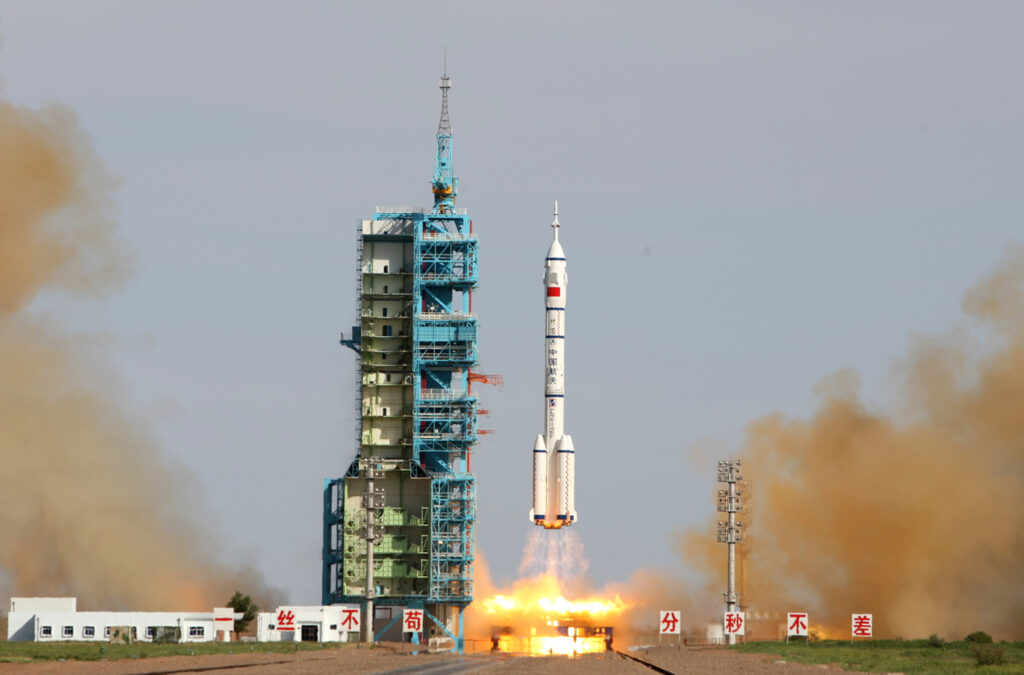
China has launched the Shenzhou-12, its first manned space mission in five years, pushing its space program to compete with the United States.
Shenzhou-12, which means “Divine Vessel,” took off from the Jiuquan Satellite Launch Center in northwest China at 01:22 GMT on Thursday, according to a live video carried by official television, CCTV.
China’s space agency said the spacecraft docked with the country’s space station Thursday afternoon, some seven hours after taking off.
According to a statement from the China Manned Space Agency, the Shenzhou-12 vessel “successfully docked with the forward port of the core module” of the Tiangong station. A Long March-2F carrier rocket was used for the launch. Three male astronauts — Nie Haisheng, Liu Boming, and Tang Hongbo – were aboard the spacecraft.
As Shenzhou cleared the Earth’s atmosphere and following the critical separation of the four rockets, two of the three astronauts performed an “OK” hand gesture on CCTV live camera.“This is the first step,” said the officials. There will be more difficulties ahead.”
According to CCTV, after entering orbit, the spaceship would perform a quick automated “rendezvous and docking with the in-orbit space station core module Tianhe.” The astronauts will spend three months in orbit, stationed in the core module.
The Shenzhou-12 is made up of 14 sub-systems and is divided into three sections: an orbiter module, a return module, and a propelling module.
Gao described the spacecraft as a “vessel of life” in an interview with the Global Times, because it will not only transport the three astronauts to the orbiting Tianhe core module, but also they’ll return to Earth in about 90 days.
According to a Chinese news agency, the Shenzhou-12 is Nie’s third space journey, following the Shenzhou-6 mission in 2005 and the Shenzhou-10 mission in 2013. It’s Liu’s second space trip, after the Shenzhou-7 mission in 2008, which included a historic spacewalk. Tang is making his first trip into space.
China’s last crewed flying mission was in 2016, when two men, Chen Dong and Jing Haipeng, were transported to Tiangong-2, a prototype of the space station, aboard the Shenzhou-11 spacecraft, where they stayed for almost a month. Beijing wants to become a major spacefaring force by 2030, making space the newest battleground in its competition with the US.





